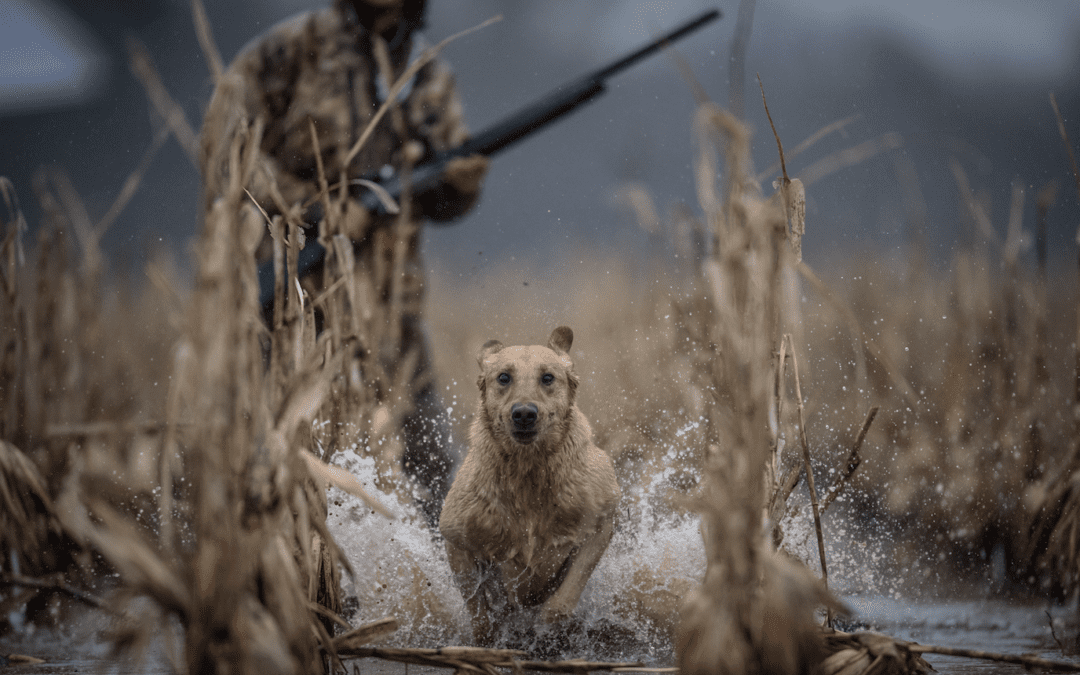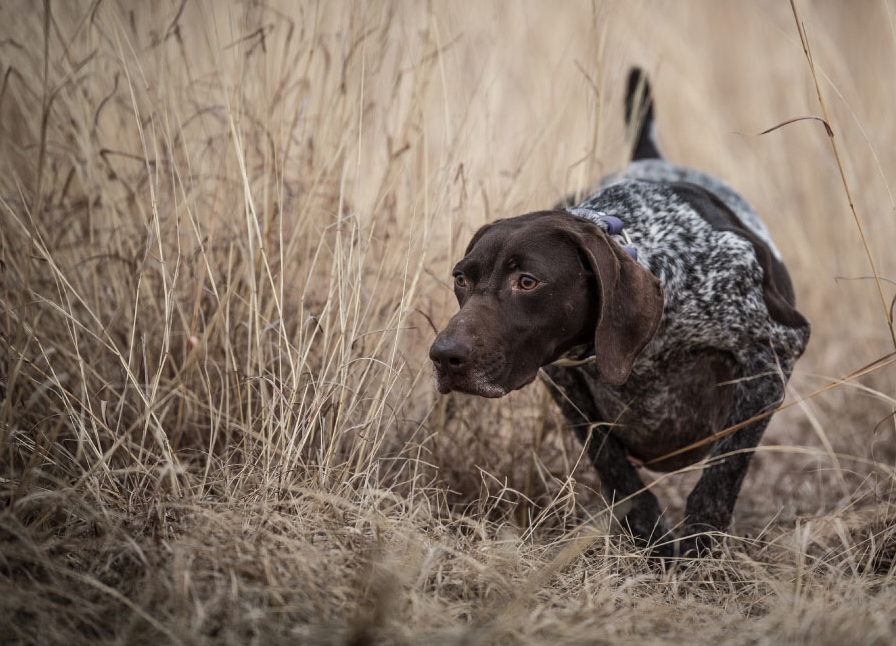If we want top performance from our dogs, we need to feed them a diet that nourishes the whole dog, and not just one particular body part.
SPONSORED CONTENT
As hunters, we are always striving to take our passion to the next level. We spend time at the range practicing, as well as countless hours working with our dogs to improve their field performance. Yet many handlers overlook the most important aspect of taking their dog’s performance to the next level: nutrition.
For a long time, hunters have thought of nutrition as ingredients. However, ingredients are only one piece of a much larger puzzle. If we want top performance from our dogs, we need to feed them a diet that nourishes the whole dog, and not just one particular body part.
Think Nutrients, Not Ingredients
“Dogs are natural athletes, but when we talk about performance dogs, we are describing a level of athleticism beyond that of the typical pet dog,” says Russ Kelley of the Eukanuba Pet Health & Nutrition Center. “A tailored diet can provide the invisible edge needed to help maximize your dog’s potential so they can reach peak performance.” For a dog to perform at a high level, all body systems need to be fed. Those include the skeletal, cardiovascular, respiratory, digestive, nervous, and other systems.
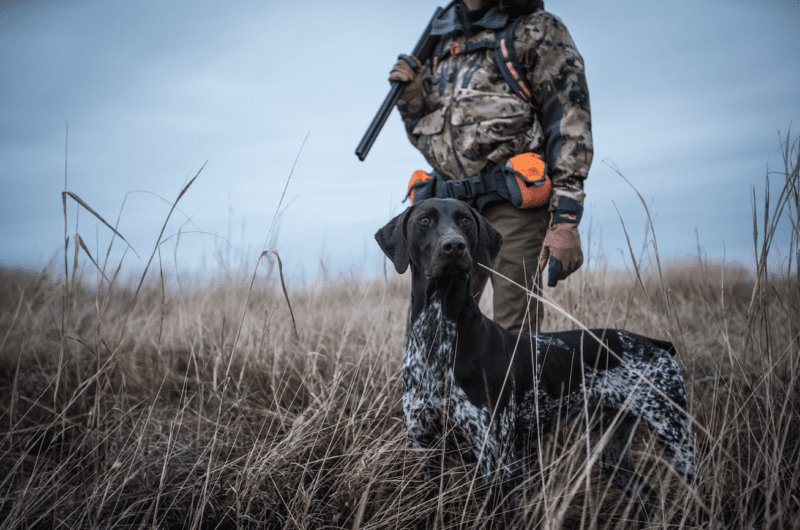
Feeding the “whole dog” is an approach that keeps them healthy and performing at their peak. PC Eukanuba Sporting Dog
“People tend to give all the nutritional credit to specific ingredients, when the right nutrients truly deserve the spotlight,” he says. “Macronutrients, including proteins, fats, and carbohydrates, are all functional components that help fuel performance and give your dog the energy to run from dawn to dusk.”
Whether a dog is pointing in a Conservation Reserve Program (CRP) field or retrieving in flooded timber, their muscles demand protein. Protein supports muscle growth, but it also helps strengthen the cardiovascular, skeletal, and respiratory systems. Additionally, it promotes a healthy skin and coat. Hunting, field trialing, and training all place a massive demand for protein on a dog. While protein can serve as a source of energy, fat and carbohydrates are more important.
“Some dogs need a higher concentration of fat to sustain energy over long days in the field or when making countless retrieves. Other dogs that do sprint-based activities like dock diving or flushing as a strike dog need carbohydrates for quick bursts of energy,” says Kelley. “Your dog’s activity levels should factor into the formulas they’re fed.”
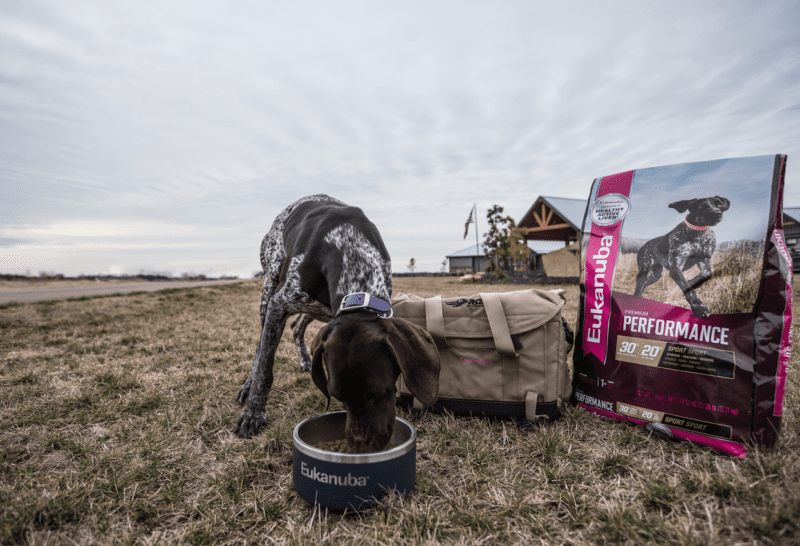
When feeding dogs, think of nutrients instead of ingredients. PC Eukanuba Sporting Dog
Your Dog is More than Muscle
Beyond macronutrients, such as fat, protein and carbohydrates, our dogs have other needs, including nutrients to support healthy brain function, promote joint health and support digestion. They also need to readily recover so they can perform in the field again the next day.
Gun dogs can experience more stress on their joints than less active dogs. Joints, and in particular cartilage, are subjected to significant use as our dogs turn, jump and accelerate in the field. Lots of miles or retrieves also mean repeated impacts on their joints, and muscles mean nothing without healthy joints to support them. “The important dietary components for supporting healthy, agile joints are glucosamine and chondroitin,” Kelley says.
Kelley also touches on the importance of antioxidants to aid in a dog’s post-exercise recovery time. Indeed, a study* of Iditarod sled dogs showed that an antioxidant cocktail made of vitamin E, lutein, and beta-carotene helped decrease markers of oxidative stress, and found that dogs with higher pre-race plasma Vitamin E concentration were twice as likely to finish the race.
Of course, advanced nutrition means nothing if a dog’s body can’t absorb it. “Heavy workloads can put a lot of stress on a dog’s digestive system, and if their digestive system is irritated, the dog won’t be able to perform at their peak,” notes Kelley. Diets that incorporate fermentable fibers and prebiotics help with GI health.
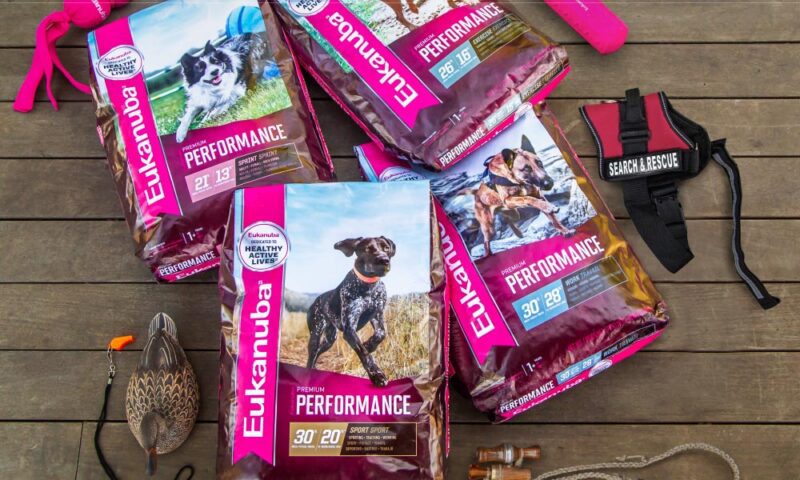
Another aspect that plays a larger role in digestion than most owners and handlers realize is kibble size. Kibble that is small and perfectly round is easy for a dog to swallow without chewing. Without being chewed, the kibble isn’t ground by the teeth. Small kibble that is swallowed without being chewed allows many nutrients to pass through the small intestine without being fully absorbed. So, slightly larger kibble size formed in irregular shapes encourages chewing and aids in digestion. That chewing also helps reduce tartar and plaque build-up on the teeth.
Sporting dogs have a lot to pay attention to in the field. Nutrients that support your dog’s cognitive function can help him perform even better. Kelley suggests diets with omega-3 fatty acids derived from fish oils can help support healthy brain function.
Going into a new season, it’s all about the tweaks that can make this season even better than the last. We expect a lot of our dogs, and we should expect just as much from their food. Our dogs rely on a multitude of interrelated factors to perform, so it’s important that their food addresses the whole dog, rather than focusing on one specific element.
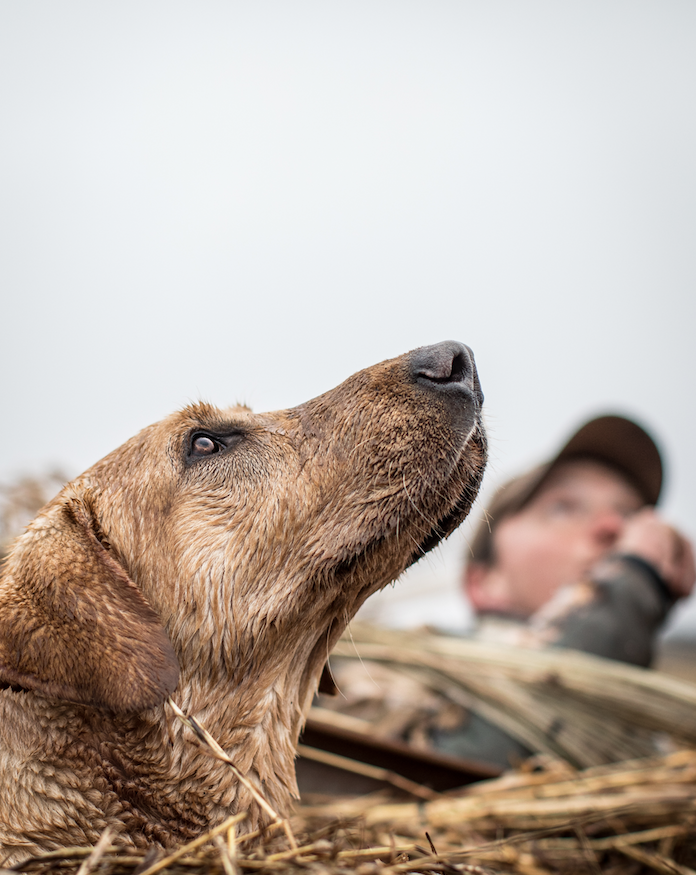
Nutrition helps sporting dogs focus on their jobs at hand. PC Eukanuba Sporting Dog
Eukanuba’s new line of Premium Performance diets pulls all of these nutritional elements into a range of formulas tailored to different activity levels. While each of the formulas vary in protein, fat and carbohydrates, they all contain vitamins, minerals and other nutrients to help provide every dog with nutrients they need to perform at their peak. Here’s a look at each new formula:
Premium Performance 21/13 SPRINT: Dogs that require bursts of energy for under three minutes at a time (think an English field cocker used as a strike dog), need explosive energy from carbohydrates and lower amounts of protein and fat. The Sprint formula provides 317 kcals ME per cup, with 43% of the caloric energy coming from carbs. The protein/fat combination is 21%/13%.
Premium Performance 26/16 EXERCISE: Dogs working for up to two hours at a time (a versatile dog in the fields or Labs used in a morning hunt) need higher quantities of protein to help support muscles and systems, and fat to help supply reserved energy. The Exercise formula supplies 355 kcals ME per cup, with 41% of caloric energy coming from fat. The protein/fat combination is 26% /16%.
Premium Performance 30/20 SPORT: Dogs that work for up to four hours at a time (Labs making multiple retrieves, running field trials or hunt tests, versatile dogs, and bird dogs) require an even higher percentage of protein and fat along with carbohydrates. The Sport formula provides 447 kcals ME per cup, with 47% of caloric energy coming from fat. The protein/fat combination is 30% /20%.
Premium Performance 30/28 WORK: Dogs that run for over four hours at a time need higher fat for long-lasting energy as well as high levels of protein. The formula is designed for sled and herding dogs as well as dogs used in bomb detection and SAR. 558 kcals ME per cup fuels them all day, with 58% of caloric energy coming from fat. The protein/fat combination is 30% /28%.
SOURCE: * Piercy RJ et al. Association between vitamin E and enhanced athletic performance in sled dogs. Med. Sci. Sports Exerc. 2001, 33 : 826-833

